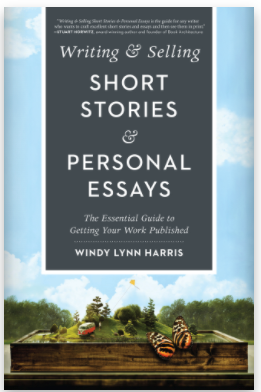 Today’s bonus prompt comes from Elise Holland, writer and editor of the 2Elizabeths online literary magazine
Today’s bonus prompt comes from Elise Holland, writer and editor of the 2Elizabeths online literary magazine
There are so many excellent contests available to short form writers.
Sometimes the clear-cut parameter of a deadline serves as inspiration, and
many contests are genre specific, creating a built-in, detailed prompt.
In order to provide a precise prompt, I suggest looking into submitting
your work to Nowhere Magazine’s Spring 2018 Travel
Writing Contest. Beneath the prompt, you will find my tips on how to find
writing contests, and how to use each set of submission guidelines as
future prompts.
The Prompt
Until May 31, 2018, literary travel magazine Nowhere is seeking
contest submissions from young, old, novice, and veteran writers.
Specifically, they are looking for stories with a strong sense of place.
Send your fiction, nonfiction, or essay, but be certain to specify which
genre your work falls into at the top of your manuscript. Submissions
should be kept between 800 – 5,000 words in length. The contest winner will receive $1,000 and publication in Nowhere. For further details and
to submit your work, visit the magazine’s website here.
Tips
- You can access a free database of writing contests from Poets &
Writer’s, here. For a minimal fee, you can access additional contest databases and information for writers through Writer’s Market or
through Duotrope.
- When you write for a contest, be sure to carefully read each set of
submission guidelines. Each publication will seek different stories based
on criteria such as genre, word count, and deadline. Use these criteria
dutifully to hone in on your story, and to ensure that your work is
considered by contest judges.
- Many contests will be genre-specific. For instance, the contest for Nowhere is seeking work revolving around travel. And later this
year 2 Elizabeths, the magazine I edit, will host its second annual Love & Romance Writing Contest. (Grab a copy of our submission guidelines, here.)
- Use these genre-specific contests to propel you into your work. You can
either be hyper-focused and choose to enter work only into the genre you
write, or you can choose to enter a variety of work into different
genre-specific contests, expanding your repertoire.
- I’m a firm believer that limitations breed creativity. And that’s exactly
how I would encourage you to view word count restrictions pertaining to a writing contest. It can be a fun game, squeezing an entire tale into a
limited number of words, and it’s a fantastic exercise in the economy of
your words.
- As you peruse any of the aforementioned databases, consider which
contests you might like to enter. Use these contest deadlines to help you
build your own editorial calendar.
- Many writing contests require participants to pay a submission fee. This
is generally intended to cover the prize which will be paid to the
winner(s), as well as to keep the publication running.
- When submitting your work there are a couple of key terms to be aware of:
simultaneous submissions and multiple submissions.
- The term simultaneous submission means that you will be
sending the same piece to several literary magazines or journals at the
same time. Most publications accept simultaneous submissions, but some do not. If a publication does not accept them, this will be stated in their guidelines.
- Should your work be selected for publication by one magazine, it is
important to notify other publications where you have submitted that piece.
This courtesy will prevent complications, and will keep you in good graces with various editors, should you wish to submit to them again in the future.
- The term multiple submission means that you are submitting multiple pieces to the same literary magazine or journal. This is generally accepted, but if it’s not, that will be specified in the submission guidelines.
About Elise Holland
Elise Holland is the editor of 2 Elizabeths, a literary magazine
focused on poetry and short fiction, with an emphasis on romance and
women’s fiction. Her work has been published inWriter’s Digest Magazine, The Writer’s Dig, and at DIY MFA. Find Holland online at 2Elizabeths.com.


 Today’s bonus prompt comes from Elise Holland, writer and editor of the 2Elizabeths online literary magazine
Today’s bonus prompt comes from Elise Holland, writer and editor of the 2Elizabeths online literary magazine


 [500 px wide]
[500 px wide]